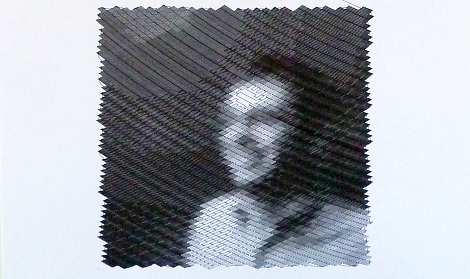[Euphy] just posted an Instructable of his Polargraph drawing machine that’s able to draw huge images slower than molasses in November. The plotter only uses two stepper motors to control the position of the pen and can be made nearly entirely from salvaged parts – [Euphy] built his for just about £150.
The Polargraph uses two stepper motor on the top corners of a large, flat surface. A weighted pen carriage is attached to both motors with beaded cord that’s often seen in window blinds. By controlling the distance from the carriage to each motor, the position of the pen can be precisely controlled. It’s not a very fast way of drawing an image (check out the real-time video), but it sure is interesting to watch.
There have been a few other rope-and-chain plotters, like Der Kritzler and Hektor. [Euphy]’s work is the is one of the best documented builds we’ve seen, and he’s also put up the code and a website.
We really could have used [Euphy]’s plotter when we wanted to draw some whiteboard art. While we’re out dumpster diving for some small stepper motors, check out the time-lapse video of the Polargraph after the break.
[vimeo=24647023]

















$240 for output like that? Neat hack, I suppose, but…
It’s actually 115 euros for the kit shipped worldwide. Sure you can pay $240 if you want it tested and ready to go. But motor shields and good stepper motors are expensive so the price isn’t that bad.
$30 arduino
2*$15 stepper driver
2*$30 for motors
Stuff like this costs a lot.
it looks like it has the hardware and precision to do a lot more advanced stuff… just would take days to do it
That’s pretty cool. I can see this being used as an art installation. Drawing something on some huuuuuuge wall to illustrate the scale of something. National debt, holocaust victims, etc. Would be pretty mesmerizing, especially if it was someplace you passed often and could see the progress over several days.
Damn, clicked on report, sorry.
I suggest something like the “3M security glass” installation (google-picture-search it) but a few meters tall near a train station.
That’s very cool, though I’d like to see it built with a more robust mechanism.
Hacking takes a giant leap, backwards…
Think “UPI Wirephoto” from decades ago,
a spinning cylinder with paper wrapped around it.
A pen on a mechanism that travels the length of the cylinder lifting and dropping as the telegraph signal comes down the wire. Throw in a sync pulse to indicate the start of a line for syncing the cylinder speed. The transmitting end has a similar rotating cylinder with a photo on it but instead of a pen, an optosensor that turns on and off as the brightness of the photo spinning underneath it changes.